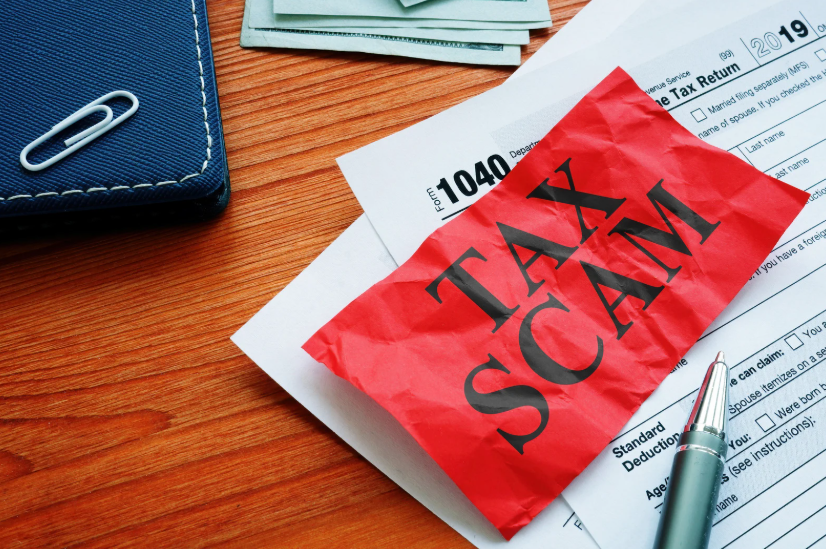
As the 2025 tax season progresses, the Internal Revenue Service (IRS) has issued strong warnings about an increase in tax-related scams targeting both individuals and tax professionals. These schemes aim to steal personal information, file fraudulent returns, and mislead taxpayers with false promises or threats.
Being aware of the most common scams can help protect your identity, your finances, and your peace of mind.
1. Phishing Emails and Text Messages
Scammers are sending emails and text messages that appear to come from the IRS or other legitimate sources. These often contain links or attachments designed to steal personal information. The IRS never initiates contact via email, text, or social media.
2. Ghost Tax Preparers
These are individuals who offer to prepare your tax return but refuse to sign it or provide their Preparer Tax Identification Number (PTIN). This is a red flag, as legitimate preparers must always identify themselves. Ghost preparers may also inflate refunds or claim false credits, putting taxpayers at risk.
3. Fake Charities
Fraudsters create fake charities, especially after natural disasters or major events, to trick people into making “donations” that are not tax-deductible. Always verify a charity’s status before contributing.
4. Offer in Compromise Scams
Some companies falsely advertise that they can settle your IRS debt for “pennies on the dollar” through the Offer in Compromise program. While this is a legitimate IRS option, not everyone qualifies, and dishonest firms often charge large fees without delivering results.
5. Social Media Tax Myths
Misinformation spreads quickly online. Some users share false advice about claiming credits or deductions, or promote risky refund schemes. Acting on this bad advice can result in audits, fines, or even criminal penalties.
6. IRS Impersonation Calls
Taxpayers continue to report scam phone calls from people pretending to be IRS agents. These calls may threaten arrest, deportation, or license suspension unless immediate payment is made. The IRS does not make such threats or demand payment over the phone.
7. Identity Theft and Refund Fraud
Scammers use stolen personal data to file fake returns and steal refunds. Victims usually discover the fraud when their legitimate return is rejected. Filing early and protecting your data can help prevent this.
8. False Tax Credit Claims
Some preparers and promoters encourage taxpayers to claim credits they don’t qualify for, such as the Fuel Tax Credit or the Sick and Family Leave Credit. These can trigger IRS scrutiny and significant penalties.
🛡️ How to Protect Yourself
-
Never click on links in suspicious emails or texts.
-
Confirm the credentials of anyone preparing your taxes.
-
File early to reduce the risk of identity theft.
-
Never send payments or personal info to unknown sources.
-
Use only official IRS channels and trusted professionals.
Staying informed and cautious is the best way to protect yourself during tax season. When in doubt, always contact a certified tax professional or check directly with the IRS.
📌 Sources:
-
IRS Newsroom: Common tax scams to watch for in 2025
-
IRS: Dirty Dozen scams warning list
-
IRS: Scam alerts for taxpayers and tax professionals
Are You Looking for
Experienced Attorneys?
Get a free initial consultation right now
